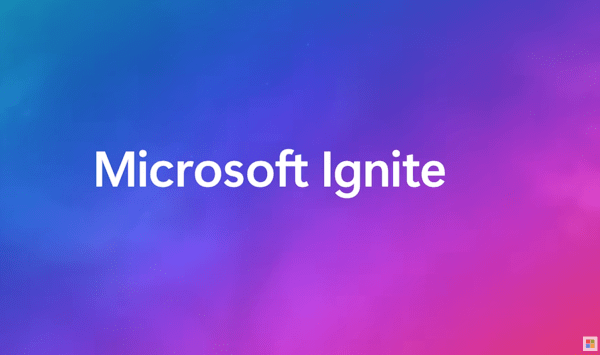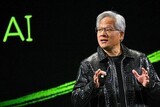What It Takes to Become a Frontier Firm in the New Corporate Era
Microsoft Ignite 2025 opened with a clear message. Artificial intelligence has outgrown its role as a tool for efficiency. It is no longer just a utility that accelerates productivity. AI is emerging as a foundational layer of modern civilization, reshaping how organizations think, operate, process data and make decisions.
Microsoft calls the companies leading this shift “frontier firms.” These organizations do not ask how they should adopt AI. They ask how their businesses must be redesigned for an AI-driven economy. It is a strategic reframing that separates leaders from those still treating AI as a side project.
Why AI Still Fails in the Enterprise
Despite rapid advancements, the success rate of enterprise AI projects remains stubbornly low. Microsoft identifies four recurring obstacles.
Many companies still separate IT from the business, turning AI into a technical experiment that never reaches real operational pain points. Data quality remains another persistent barrier. Fragmented, non-standardized and semantically inconsistent data can undermine even the most advanced models.
A third challenge is regulatory avoidance. Companies often view AI primarily as a risk and exclude it from core workflows, keeping it trapped in perpetual pilot mode. The fourth is an inability to move beyond proof-of-concept. Without real deployment, AI cannot generate meaningful returns.

The Four Pillars of Frontier Firms
Frontier firms approach AI from a fundamentally different philosophy, focusing on four areas of transformation.
The first is employee experience. AI eliminates the tasks people dislike, such as documentation, reporting and data validation. By shifting repetitive work to Copilot, employees can engage in judgment-intensive, mission-critical tasks that restore meaning and motivation.
The second is customer experience. AI enables real-time, context-aware and personalized interactions, reducing cost structures while raising service quality.
The third is business process redesign. Rather than layering AI on top of existing workflows, frontier firms rebuild the workflows themselves as AI-first structures. Entire steps disappear, allowing humans to concentrate on decisions rather than administrative mechanics.
The fourth is industry-level innovation in fields like drug discovery, materials science, automation and financial modeling. In these areas, AI does more than support competitiveness. It creates it.
Three Traits That Define the New Corporate Elite
These frontier firms share three defining characteristics.
The first is AI embedded in the flow of human ambition. AI is not a separate window for typing prompts. It is integrated into daily tools, subtly shifting how work happens. Microsoft 365 Copilot demonstrates this shift by understanding a user’s role, responsibilities, organizational context and project history.
Its impact is most visible in healthcare. Integrated with Epic, AI helps nurses close daily tasks more quickly, enables physicians to generate accurate notes from natural conversation and shortens medication authorization times by up to 40 percent. AI becomes part of the operational fabric.
The second characteristic is ubiquitous innovation. Every employee becomes a creator. App Builder allows anyone to build an application with natural language. Copilot Studio turns domain experts into AI agent designers, empowering them to automate real business actions. Developers are supported by a multi-model GitHub Copilot that extends coding into a collaborative agent system. Innovation moves from the center to the edges, where real problems live.
The third is full-stack observability. Microsoft predicts that 1.3 billion AI agents will be embedded in enterprise workflows by 2028. Managing access, behavior, cost and security at this scale requires complete visibility. Agent 365 provides unified monitoring and control, while the Foundry Control Plane lets developers switch models to reduce costs up to tenfold and neutralize security threats in real time. The era of AI deployment is becoming the era of AI management.
Inside the IQ Ecosystem
At the core of this new paradigm is Microsoft’s IQ ecosystem.
Work IQ understands people and organizational context.
Fabric IQ creates semantic models that unify business logic.
Foundry IQ connects structured and unstructured knowledge to support reasoning, planning and action that go far beyond traditional retrieval systems.
Together, these layers enable AI to evolve from an answer generator into a decision-making agent.
Infrastructure as the Ultimate Advantage
All of this intelligence depends on Azure’s AI-optimized supercomputing infrastructure. Microsoft now operates Azure in more than 70 regions and is the first cloud provider to deploy NVIDIA Grace Blackwell GPUs at hyperscale. The 93 percent cost reduction in GPT-4 model operations reflects these infrastructure optimizations.
Running data centers on fully renewable energy, using liquid cooling with near-zero water waste and supporting massive AI applications through OneLake, Cosmos DB, AKS and Horizon DB, Microsoft argues that real competitive advantage lies in the depth of infrastructure rather than algorithms alone.
The New Corporate Question
Microsoft’s thesis is simple. AI expands human potential and ambition. To realize this, organizations need AI embedded in daily workflows, a workforce empowered to create and a governance architecture capable of managing AI safely at scale.
Across industries, from agricultural economists to clinicians, financial advisors, engineers, marketers and scientists, people are beginning to focus on deeper, more strategic work because AI handles the rest.
And now comes the defining question. Does your organization still see AI as a tool, or as a new foundational layer of business? The answer will determine whether your company becomes a frontier firm in the AI-first era.
Geum Mongjeon ㅣkmj@kmjournal.net
- Transparent iPhone Rumors Surge Again as Apple’s “All-Glass” Patent Raises Bezel-Free iPhone Expectations
- “Not in Keeping with Christian Values?”… Church of England School Faces Backlash over Ban on Netflix’s K-Pop Demon Hunters Song
- OpenAI Ranked as Silicon Valley’s Second Most Vulnerable “AI Bubble” Company as Mounting Losses Raise Concerns
- Can Google’s Gemini 3 Become the Plot Twist That Restores Its Lost AI Dominance?
- Why Kakao Has Become Korea’s “Ugly Duckling”
- [MS Ignite 2025] Microsoft Says Dual Partnership with OpenAI and Anthropic Reflects a “Multi-Model Strategy for Customer Choice”
- [MS Ignite 2025] Microsoft Unveils AI Agents for Word, Excel and PowerPoint at Ignite 2025, Signaling a New Era of Office Productivity
- [MS Ignite 2025] Microsoft Unveils “Agent 365” to Bring Order to the AI Assistant Chaos

![[동학] 카카오톡 친구탭, 결국 12월 롤백… “격자형 피드는 선택 옵션으로”](https://cdn.kmjournal.net/news/thumbnail/custom/20251126/5517_10550_1119_1763853080_120.jpg)


![[테크 칼럼] 제미나이3, GPT-5.1을 넘다…AI는 이제 ‘일을 대신하는 시대’로 간다](https://cdn.kmjournal.net/news/thumbnail/custom/20251126/5457_10454_4847_1763621329_120.jpg)


![[낭만 테크 시대] AI 대항해 시대](https://cdn.kmjournal.net/news/thumbnail/custom/20251126/5603_10714_4334_1764121414_160.jpg)


